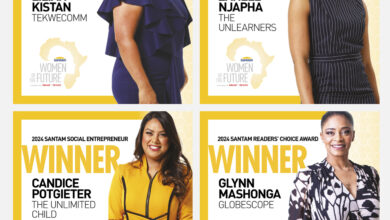The 2024 SME Toolkit Business Plan Competition Opens Entries

The 2024 SME Toolkit Business Plan Competition Opens Entries. In South Africa, entrepreneurship holds the key to addressing several economic, social and educational aspects of sustainable development. With its vast potential to drive job creation, innovation and social empowerment, entrepreneurship can make an important contribution towards alleviating poverty and building a more equitable society. Platforms like the 2024 SME Toolkit Business Plan competition – which is now open for entries – provide aspiring business owners with an all-important opportunity to become part of this promising entrepreneurial ecosystem.
This year, the SME Toolkit competition enters its 15th year in the running as it welcomes entrants from across the country to submit their entries and gain access to the tools and training needed to explore the feasibility of their business ideas. In 2009, small- and medium-sized enterprise (SME) risk financier, Business Partners Limited and its initiative SME Toolkit South Africa came together to create what was then referred to as the Business Plan Competition.
Since its inception, the competition has provided an annual platform that sees hundreds of entries from entrepreneurs-in-the-making who are looking to formulate a go-to-market strategy, develop their skillset and acquire the fundamental knowledge to turn their dreams into reality. For David Morobe, Executive General Manager of Impact Investing at Business Partners Limited, the SME Toolkit competition is a showcase of the country’s most promising entrepreneurial talent. “Every year, we are amazed at the calibre of ideas, creative thinking and business acumen that the competition attracts. Last year we saw entrants from various fields, including agro-processing, upholstery cleaning, interior design, retail and manufacturing. As diverse as these entries are, they share an important common denominator, which is a relentless drive to succeed, often despite very trying odds. As a specialist financier, we are acutely aware of the challenges that aspiring entrepreneurs face on the ground and we hope, through platforms like these to not only unlock entrepreneurial potential, but also provide much-needed training and professional development.”
For many of the entrants, the decision to start a business arises from a need as much as it does from personal ambition. According to the most recent Global Entrepreneurship Monitor report, an increasing number of South Africans are choosing an entrepreneurial path as a way of earning a living during a time of record-high unemployment. Between 2021 and 2022, motives for entrepreneurship that are linked to wanting to make a difference in the world, to build wealth and to continue a family tradition, all declined among the sample of respondents. In contrast, entrepreneurs’ motives for starting a business because jobs are scarce, increased from 84.7% in 2021 to 89.5% in 2022. In a socioeconomic climate characterised by high unemployment therefore, as Morobe explains, platforms that promote entrepreneurship can play a pivotal role in changing lives and livelihoods. This in turn, ties in with the United Nations’ Sustainable Development Goals (SDGs).
The SME Toolkit Business Plan competition for example, can help address social inequalities by providing opportunities to members of society who may otherwise be overlooked, including marginalised communities, the youth and women. This talks specifically to SDG 10 – reduced inequalities. Likewise, these kinds of programmes align with SDG 9 – industry, innovation and infrastructure, by fostering a culture of innovation amongst the local entrepreneurial ecosystem, and by supporting the creation of new businesses.
SDG 4, which relates to quality education, is also a crucial part of the bigger picture. As Morobe elaborates: “apart from the showcasing capability of the competition, the programme also includes a workshop component in which participants can enrol. These workshops teach future business owners important skills such as how to formulate a business plan, how to manage cashflow effectively and how to take an idea to market. The mentorship and networking opportunities that the programme unlocks can also provide entrepreneurs with market access. In this way, we’ve been able to structure the competition as a holistic enabler of creativity, innovation and growth.”
With that, Morobe encourages all aspiring business owners between the ages of 18 and 35, to enter and participate in the 2024 SME Toolkit Business Plan competition. The competition will kick off with a series of in-person and online training sessions and culminate in a competition which will require entrants to submit a business plan for their chosen idea.
This year’s first prize winner will win R50,000 in cash and a mentorship opportunity worth R50,000. The second prize winner will receive R30,000 in cash and mentorship to the value of R30,000. The third prize winner will be awarded R20,000 in cash and a R20,000 mentorship opportunity. The remaining finalists will each receive a R10,000 mentorship prize.




